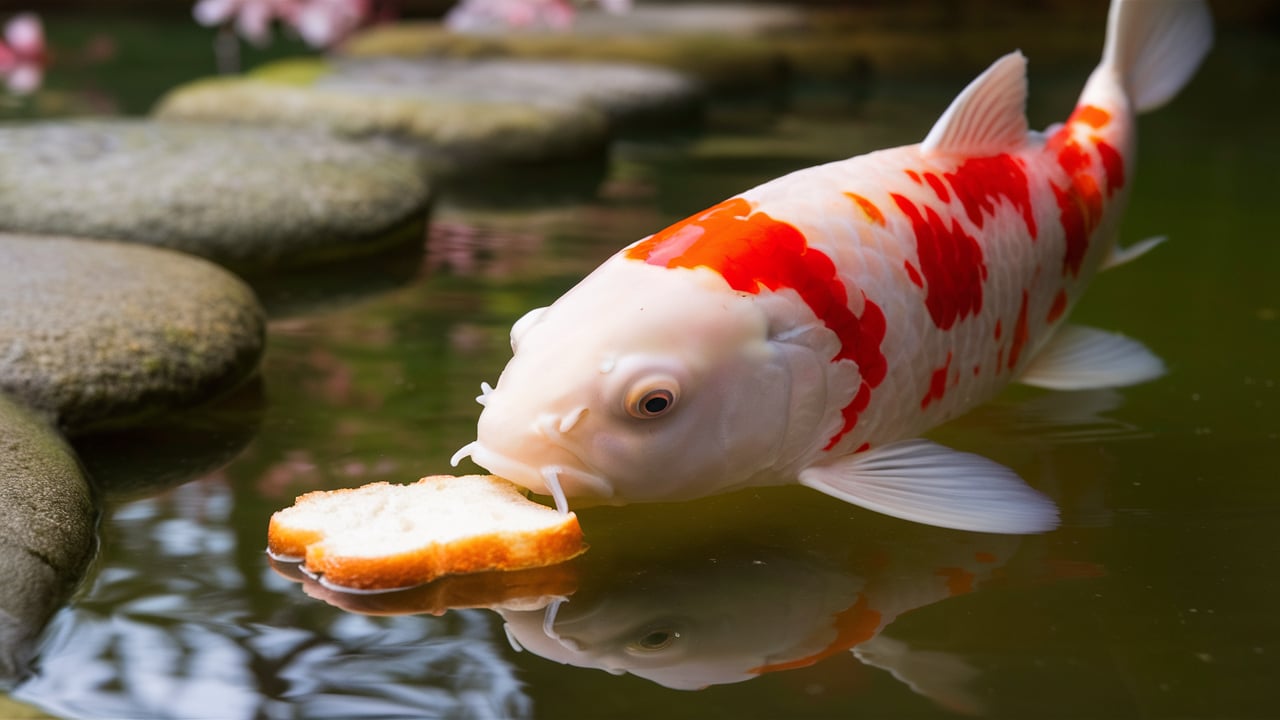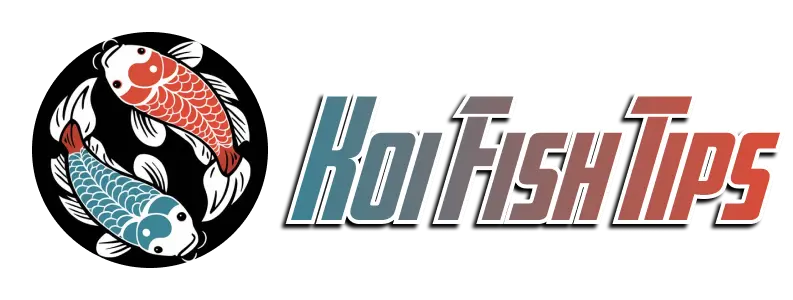Do koi fish eat bread? Is it a suitable food for koi? This comprehensive guide, Koi Fish Tips will delve into the fascinating world of koi nutrition, exploring the question of whether bread is a safe and healthy food choice for these beautiful fish. We’ll examine the nutritional value of bread, its potential risks to koi health, and alternative food options that are better suited to their dietary needs.
The Nutritional Needs of Koi Fish
Koi, like all living organisms, require a balanced diet to thrive. Their nutritional needs are met by a variety of essential nutrients, including:
- Protein: Protein is crucial for muscle growth, tissue repair, and overall health.
- Fat: Fats provide energy and support the absorption of certain vitamins.
- Carbohydrates: Carbohydrates are the primary source of energy for koi.
- Vitamins: Vitamins play a vital role in various bodily functions, including immune system health and growth.
- Minerals: Minerals are essential for bone development, muscle function, and other vital processes.
Do Koi Fish Eat Bread?
Bread, while a staple food for humans, is not a suitable food source for koi. It lacks the essential nutrients koi need to thrive and can even pose health risks. Here’s a breakdown of why bread is not a good choice for your koi:
- Low Nutritional Value: Bread is primarily composed of carbohydrates, with limited amounts of protein, fat, vitamins, and minerals. It lacks the essential nutrients koi require for optimal growth and health.
- High in Carbohydrates: Koi have a limited ability to digest carbohydrates, and a diet high in carbohydrates can lead to digestive issues, such as bloating and constipation.
- Lack of Protein: Protein is a crucial nutrient for koi, particularly for growth and development. Bread lacks sufficient protein to meet their needs.
- Potential for Bloating: Bread can expand in the stomach, potentially causing bloating and digestive discomfort in koi.

The Risks of Feeding Bread to Koi
Feeding bread to koi can have several negative consequences for their health:
- Digestive Issues: Bread can be difficult for koi to digest, leading to bloating, constipation, and other digestive problems.
- Nutritional Deficiencies: Bread lacks the essential nutrients koi need for optimal growth and health, leading to potential deficiencies.
- Water Quality Issues: Excess bread can decompose in the pond, contributing to water quality problems such as increased ammonia levels and algae growth.
- Obesity: Bread is high in carbohydrates and low in protein, which can contribute to obesity in koi.
- Fungal Infections: Bread can attract fungi and bacteria, which can lead to infections in koi.
Can koi eat bread crumbs?
No, koi fish should not eat bread crumbs. While they might seem like a tempting treat, bread crumbs lack the essential nutrients koi need to thrive and can even pose health risks.
Here’s why bread crumbs are a bad idea for koi:
- Digestive Issues: Bread crumbs can be difficult for koi to digest, leading to bloating, constipation, and other digestive problems. Their digestive systems are not designed to break down bread efficiently.
- Water Quality Issues: Excess bread crumbs can decompose in the pond, contributing to water quality problems such as increased ammonia levels and algae growth. This can harm the overall health of your pond ecosystem and your koi.
- Fungal Infections: Bread crumbs can attract fungi and bacteria, which can lead to infections in koi.
Are There Any Other Foods That Are Harmful To Koi?
You’re right to be cautious about what you feed your koi! While they might seem like they’d enjoy a variety of human foods, many are actually harmful to their delicate systems. Here’s a list of foods to avoid giving your koi:
Foods to Absolutely Avoid:
- Processed Foods: Avoid feeding koi processed foods like chips, crackers, cookies, or anything with artificial flavors, colors, or preservatives. These lack nutritional value and can cause digestive upset.
- Meat: While koi are omnivores, they cannot digest meat efficiently. Feeding them meat can lead to digestive problems and even death.
- Dairy Products: Dairy products like milk, cheese, and yogurt are not suitable for koi. They can cause digestive issues and are not easily processed by their bodies.
- Fruit Seeds and Pits: Fruit seeds and pits can be a choking hazard for koi and may contain toxins that are harmful to them.
- Avocado: Avocado is toxic to koi and can cause severe health problems, even death.
- Chocolate: Chocolate is toxic to koi and should never be given to them.
- Alcohol: Alcohol is toxic to koi and can cause serious health problems.
- Salt: Excess salt can be harmful to koi and can disrupt their internal balance.
Alternative Food Options for Koi
Instead of feeding bread, opt for high-quality koi food specifically formulated to meet their nutritional needs. Here are some excellent options:
- Koi Pellets: Pellets are a convenient and nutritious food source for koi. Choose pellets that are high in protein, low in carbohydrates, and contain added vitamins and minerals.
- Koi Flakes: Flakes are another popular choice for koi. They are readily available and offer a good balance of nutrients.
- Live Foods: Live foods, such as brine shrimp, daphnia, and mosquito larvae, provide a natural source of protein and other essential nutrients.
- Vegetables: Koi can enjoy a variety of vegetables, including peas, spinach, and zucchini. However, offer these in moderation as they are low in protein.
Conclusion
Feeding koi bread is not recommended. It lacks the essential nutrients they need and can pose several health risks. Opt for high-quality koi food specifically formulated to meet their nutritional needs. By providing your koi with a balanced diet and proper care, you can ensure their health and longevity, allowing you to enjoy their beauty and grace for years to come.

Bài viết liên quan
Baby Koi Fish – A Journey Of Growth And Beauty
Imagine a tiny, shimmering speck of color darting through the water, a miniature version of [...]
Jul
Best Food For Koi Fish: What To Feed And What To Avoid
Koi fish, with their vibrant colors and elegant movements, are a captivating addition to any [...]
Jul
Do Koi Fish Hibernate? Understanding Their Winter Behavior
As the seasons change and temperatures drop, many koi enthusiasts wonder: Do koi fish hibernate? [...]
Jul